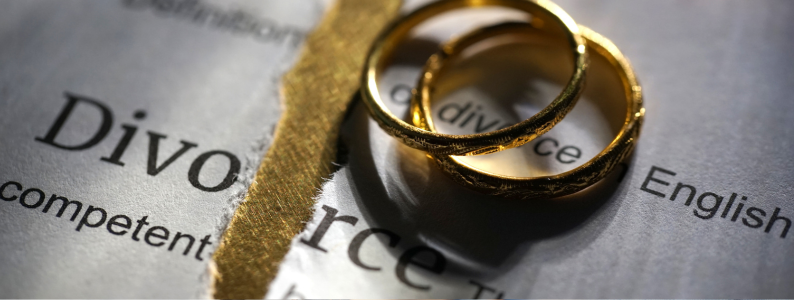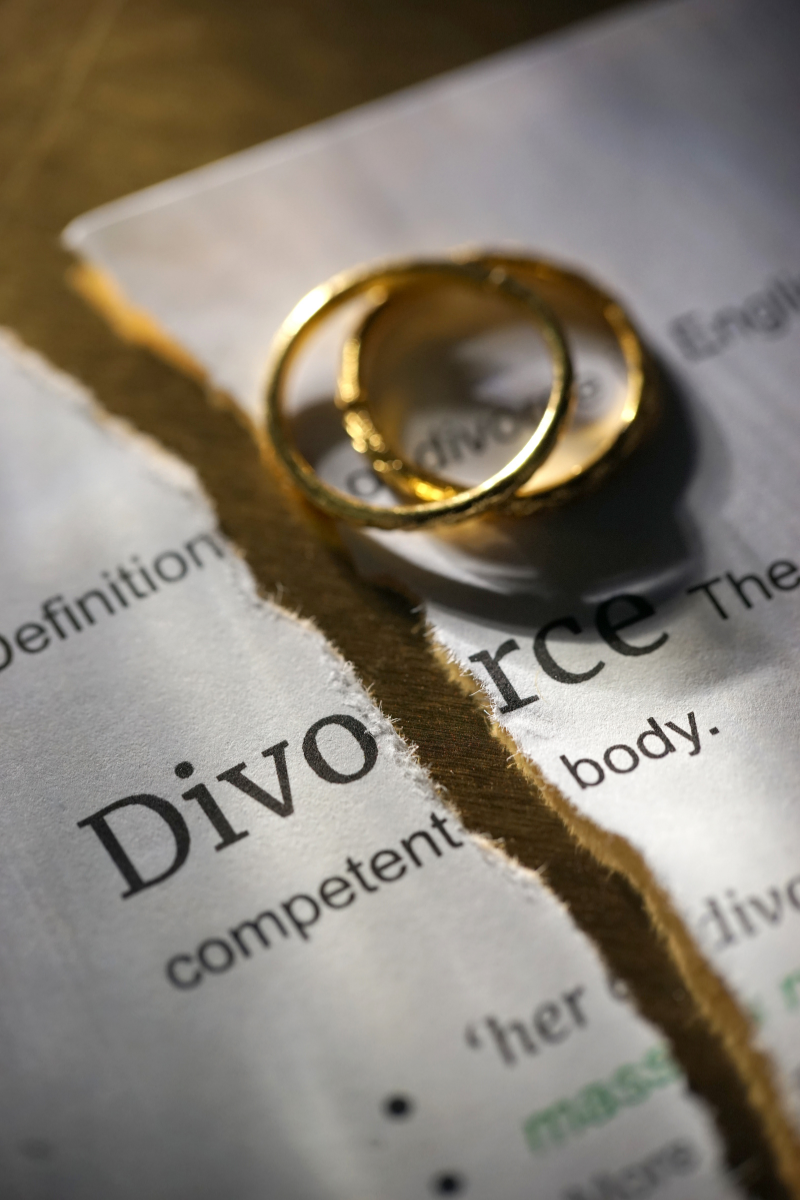The Most Common FAQs About Divorce
Divorce can be one of the most emotionally and financially challenging life transitions anyone faces. Whether you’re considering filing for divorce or already in the process, understanding your rights and the legal framework can help you make more informed decisions.
At Masters Law Group, we understand that every family situation is unique, and so are the questions that arise. That’s why we’ve put together this comprehensive guide addressing the most frequently asked questions about divorce in Illinois.
1. What Are the Grounds for Divorce in Illinois?
Illinois is a “no-fault” divorce state. This means that the only legally recognized ground for divorce is irreconcilable differences, or the inability to get along with no hope for reconciliation. You don’t need to prove infidelity, abuse, or any other misconduct to file.
However, fault can still play a role in related matters like property division or parenting time, especially if one party’s behavior negatively impacts the children or marital assets.
2. What’s the Difference Between Contested and Uncontested Divorce?
- Uncontested Divorce: Both spouses agree on all aspects of the divorce. This is often faster, less expensive, and more private.
- Contested Divorce: One or both spouses dispute aspects of the divorce, such as allocation of parental responsibility, spousal support, or asset division. This often leads to court proceedings and extended timelines.
Masters Law Group can help you determine the best route for your situation and protect your interests every step of the way.
3. Do I Need an Attorney to Get Divorced in Illinois?
While it is legally possible to get a divorce without an attorney, it’s not recommended, especially if children, significant assets, or spousal support are involved. Divorce laws are complex, and without proper legal guidance, you could end up with an unfair settlement or make mistakes that delay the process.
Working with an experienced family law attorney from Masters Law Group helps ensure your rights are protected and your future is secured.
4. What Happens to Our Property and Assets in a Divorce?
Illinois follows the principle of equitable distribution. This does not mean assets are split 50/50, but rather in a manner the court deems fair. Marital property is typically divided, while separate property remains with the original owner.
- Marital Property: Assets acquired during the marriage (homes, income, retirement accounts, etc.)
- Separate Property: Assets owned before the marriage or received as gifts/inheritance
A judge will consider factors like each spouse’s financial circumstances, contributions to the marriage, and parenting plan arrangements when dividing assets.
5. How Is Debt Handled in a Divorce?
Just like assets, debts incurred during the marriage are generally considered marital and are divided equitably. This includes mortgages, credit card debt, auto loans, and other shared liabilities.
If a debt is in one spouse’s name but was used for family purposes, it may still be considered marital debt. Protecting your financial future means understanding and negotiating how these obligations are split.
6. What Are the Laws Around Allocation of Parental Responsibility
Illinois law uses the term allocation of parental responsibilities instead of “custody.” Parenting responsibilities are divided into:
- Decision-Making: Who makes decisions about education, healthcare, religion, and extracurriculars
- Parenting Time: Where and when the child spends time with each parent
Courts always prioritize the child’s best interests, considering factors like:
- The wishes of the child (depending on age/maturity)
- The relationship between the child and each parent
- The child’s adjustment to home, school, and community
- The mental and physical health of all parties
At Masters Law Group, we are experienced in developing customized parenting plans that reflect your family’s needs and serve your child’s best interests.
7. How Is Child Support Calculated in Illinois?
Illinois uses an income shares model to calculate child support. This model considers both parents’ income and the number of overnights each parent has with the child.
Support may also include expenses for:
- Health insurance
- Childcare
- Extracurricular activities
- Educational expenses
Our attorneys use state-approved tools to estimate child support and advocate for fair arrangements that reflect your family’s financial realities.
8. Can I Modify a Child Support or Parenting Plan Agreement?
Yes. Life changes, and Illinois law allows modifications under certain circumstances. To request a change, you must show a substantial change in circumstances, such as a job loss, relocation, or change in the child’s needs.
At Masters Law Group, we guide clients through modification requests and work to help ensure updated arrangements meet your needs and comply with Illinois law.
9. What Is Spousal Support (Alimony), and How Is It Determined?
Spousal maintenance, formerly known as alimony, is not automatic in Illinois divorces. The court evaluates several factors, including:
- The length of the marriage
- The standard of living established
- Each spouse’s income and earning potential
- Contributions to the household (including homemaking)
- The recipient spouse’s need for education or training
If awarded, maintenance is calculated based on a formula outlined in Illinois law, unless the court decides otherwise.
10. Can My Spouse and I Use Mediation or Collaborative Divorce?
Yes. Many couples choose alternative dispute resolution methods like mediation or collaborative divorce to settle their issues outside of court.
- Mediation involves a neutral third party helping you reach agreements.
- Collaborative Divorce involves both parties hiring divorce attorneys who work cooperatively to resolve issues.
These approaches can save time, money, and emotional distress while keeping you in control of the process.
Masters Law Group offers mediation and collaborative law services tailored to fit your unique situation.
11. Can I Move Out of State With My Child After Divorce?
Under Illinois law, you cannot relocate a child out of state, or more than 25 miles away from the child’s current residence within Illinois, without court approval or the other parent’s consent.
If relocation is contested, the court will weigh several factors to determine whether the move is in the child’s best interest.
If you’re considering relocation, it’s crucial to work with a skilled family law attorney to navigate the legal steps involved.
12. What if My Spouse Won’t Cooperate With the Divorce?
Even if your spouse refuses to participate, you can still obtain a divorce. The court may proceed with a default judgment if your spouse does not respond after being properly served.
While it may take more time, you do not need your spouse’s permission to divorce. At Masters Law Group, we help clients move forward confidently, even in high-conflict or uncooperative situations.
13. Will My Divorce Be Public?
Divorce proceedings in Illinois are public record. However, certain sensitive documents, such as financial affidavits and parenting plans, can sometimes be sealed or kept confidential upon request.
If privacy is a priority, Masters Law Group can help minimize exposure and protect your personal information wherever possible.
14. How Much Does a Divorce Cost in Illinois?
The cost of a divorce can vary widely depending on the complexity of your case and whether it’s contested or uncontested. Some of the main factors that influence cost include:
- Whether you and your spouse agree on key issues like asset division, child support, and parenting time
- The need for expert witnesses (such as financial analysts or child psychologists)
- Court filing fees and other administrative costs
- The amount of time your attorney needs to spend on negotiations, court appearances, and document preparation
At Masters Law Group, we’re committed to transparency and efficiency. We’ll provide a clear fee structure, keep you informed of your legal options, and work diligently to resolve your case in the most cost-effective manner possible. We also offer flexible payment options for qualifying clients.
15. What Should I Do First if I’m Thinking About Divorce?
If you’re considering divorce, start by:
- Consulting an attorney to understand your rights
- Gathering financial documents (bank records, tax returns, etc.)
- Creating a plan for children if applicable
- Considering where you will live
The most important first step is to speak with an experienced divorce attorney who can help you assess your options and build a strategy that protects your interests.
Final Thoughts: You’re Not Alone
Divorce is never easy, but you don’t have to go through it alone. The legal and emotional complexities can feel overwhelming, but with the right support, you can move forward with confidence.
At Masters Law Group, we provide compassionate, skilled legal guidance tailored to your unique needs. Whether you’re facing a high-net-worth divorce, navigating parenting plans, or seeking spousal support, our experienced attorneys are here to help.
Contact us today to schedule a complimentary consultation.
More About Masters Law Group
Whether you’re in the early stages of considering divorce or are already deep in the process, choosing the right legal partner can make all the difference in your outcome and your peace of mind. At Masters Law Group, we’re more than just legal professionals; we are dedicated advocates committed to helping individuals and families navigate complex emotional and legal terrain with clarity and confidence.
Here’s how our team stands apart:
✔ Client-Centered Approach
At Masters Law Group, we recognize that every divorce is unique. There is no “one-size-fits-all” solution. That’s why we take a personalized approach to every case, taking the time to understand your goals, concerns, and family dynamics. We listen first, and then create a legal strategy tailored to meet your specific needs.
Whether you’re seeking a peaceful resolution through mediation or preparing for a contested courtroom battle, we adapt our approach to fit your circumstances.
✔ Comprehensive Divorce Representation
From the initial filing to the final judgment, we provide end-to-end support in all aspects of divorce, including:
- Division of Marital Assets and Debts
- Spousal Maintenance (Alimony)
- Child Support and Parenting Time Agreements
- Post-Divorce Modifications
- Relocation Petitions
- Domestic Violence and Orders of Protection
We also have significant experience handling complex, high-net-worth divorces and international family law issues, including Hague Convention matters.
✔ Skilled Mediation and Collaborative Law Services
We know that litigation isn’t always the best or most efficient route for families. When appropriate, we offer mediation and collaborative divorce options that allow you to resolve disputes privately, amicably, and cost-effectively without sacrificing your legal rights or financial future.
Our attorneys are trained in alternative dispute resolution and have a strong track record of helping clients reach favorable outcomes outside of court.
✔ Focused on Family First
If children are involved, we understand how critical it is to protect their well-being while preserving your rights as a parent. Our team is highly experienced in handling allocation of parental responsibilities, parenting plans, and child support matters. We work diligently to create solutions that serve your child’s best interests while minimizing conflict and helping ensure long-term stability.
✔ Transparent Communication and Accessibility
We pride ourselves on being responsive and communicative. You’ll never be left in the dark about your case. We keep you updated every step of the way, explain legal jargon in plain English, and are always available to answer your questions.
You can count on us for honesty, reliability, and timely support because when your family’s future is at stake, nothing matters more.
✔ Award-Winning Representation
Masters Law Group is recognized as a top-tier law firm in Illinois family law. Our attorneys have been consistently honored by Super Lawyers, Best Lawyers, and the American Institute of Family Law Attorneys, among others.
Our results speak for themselves, but so do our client testimonials. We’re proud to serve as a trusted legal partner for families across Chicago and the surrounding suburbs.
Ready to Take the First Step?
We understand the uncertainty that comes with divorce, but you don’t have to face it alone. Whether you’re seeking information, guidance, or immediate representation, Masters Law Group is here to help you take back control of your future.
👉 Schedule a confidential consultation today to learn how we can help you navigate this process with confidence and compassion.



































